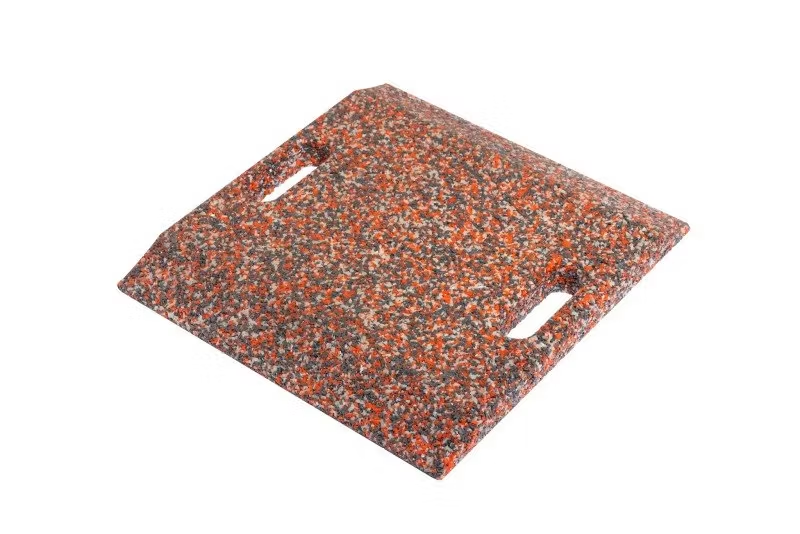Ramp for Vehicles Made from Recycled Materials: A Sustainable Innovation
Rosén Innovation COM |9/08, 2023

Ramp for Vehicles Made from Recycled Materials: A Sustainable Innovation
Introduction
In an era where sustainability and eco-friendliness have become paramount, the concept of a "Ramp for Vehicles Made from Recycled Materials" is a shining example of innovation meeting environmental responsibility. This comprehensive article explores the fascinating landscape of these sustainable ramps, showcasing their benefits, design, manufacturing process, and the positive impact they have on the automotive sector and the planet.
The Evolution of Sustainable Mobility
The automotive industry has witnessed a remarkable transformation over the years, with sustainability taking center stage. The introduction of ramps made from recycled materials represents a significant milestone in this journey towards eco-conscious mobility. These ramps offer a dual advantage: they provide a safe and efficient means for loading and unloading vehicles while simultaneously addressing environmental concerns.
Advantages of Recycled Material Ramps
Ramps crafted from recycled materials offer a multitude of benefits:
Reduced Carbon Footprint: By repurposing materials that would otherwise contribute to landfills, these ramps help diminish the carbon footprint associated with traditional manufacturing.
Cost-Effective: Utilizing recycled materials can lead to cost savings, making these ramps a financially viable option for businesses and consumers alike.
Durability and Strength: Recycled materials can provide impressive durability and strength, ensuring these ramps can withstand heavy loads and constant use.
Customization: Us manufacturers have the flexibility to create ramps of various sizes, shapes, and designs, catering to the unique needs of different vehicles and industries.
Promotion of Circular Economy: The use of recycled materials promotes a circular economy, where resources are reused and recycled, reducing the demand for new raw materials.
The Manufacturing Process
The creation of ramps from recycled materials involves several steps:
Material Collection: Recyclable materials, such as metal scraps and plastics, are collected from various sources, including industrial waste and post-consumer items.
Sorting and Cleaning: The collected materials undergo a thorough sorting and cleaning process to remove contaminants and prepare them for further processing.
Shredding and Melting: Metal components are shredded and melted down, while plastics are processed into a suitable form for molding.
Molding and Shaping: The melted materials are molded and shaped into the desired ramp design, ensuring it meets safety and performance standards.
Quality Control: Rigorous quality checks are performed to ensure the ramp's structural integrity, durability, and overall safety.
Finishing Touches: The ramp undergoes finishing processes such as painting, coating, and additional reinforcement if required.
A Greener Future on Wheels
The integration of ramps made from recycled materials into the automotive industry signifies a significant stride towards sustainability. By embracing these ramps, manufacturers and consumers contribute to:
Waste Reduction: The recycling of materials diverts waste from landfills, conserving valuable land and reducing environmental pollution.
Resource Conservation: The use of recycled materials conserves natural resources, such as metal ores and petroleum, which are otherwise extracted and processed for manufacturing.
Educational Value: Adopting recycled material ramps encourages awareness about sustainable practices, inspiring other industries to explore similar eco-friendly innovations.
Frequently Asked Questions (FAQs)
Q: Are ramps made from recycled materials as durable as traditional ramps?
A: Yes, ramps made from recycled materials undergo stringent quality control measures to ensure they meet or exceed durability standards, making them comparable to traditional ramps.
Q: Can these ramps be customized to fit specific vehicle types?
A: Absolutely! The flexibility in design and manufacturing allows for the creation of ramps tailored to various vehicle types and sizes.
Q: How do recycled material ramps contribute to a greener future?
A: By using recycled materials, these ramps reduce the demand for new resources, promote waste reduction, and exemplify sustainable practices in the automotive industry.
Q: Are there any safety concerns with using recycled materials for ramps?
A: No, reputable manufacturers like Rosén Innovation adhere to safety regulations and conduct thorough testing to ensure the ramps are safe and reliable for use.
Q: Can businesses benefit financially from using recycled material ramps?
A: Yes, these ramps can lead to cost savings over time, especially as businesses prioritize sustainability and seek more environmentally friendly solutions.
Q: Where can I find reputable manufacturers of ramps made from recycled materials?
A: Right here at Rosén Innovation! Other reputable manufacturers can be found through industry associations, online directories, and referrals from other businesses in the automotive sector.
Conclusion
Ramps for vehicles made from recycled materials are paving the way for a greener and more sustainable automotive industry. Through innovative design, careful manufacturing processes, and a commitment to eco-conscious practices, these ramps provide a practical solution for businesses and consumers while contributing to a healthier planet. Embracing these ramps signifies a progressive step towards a future where sustainable mobility is the driving force behind progress.
